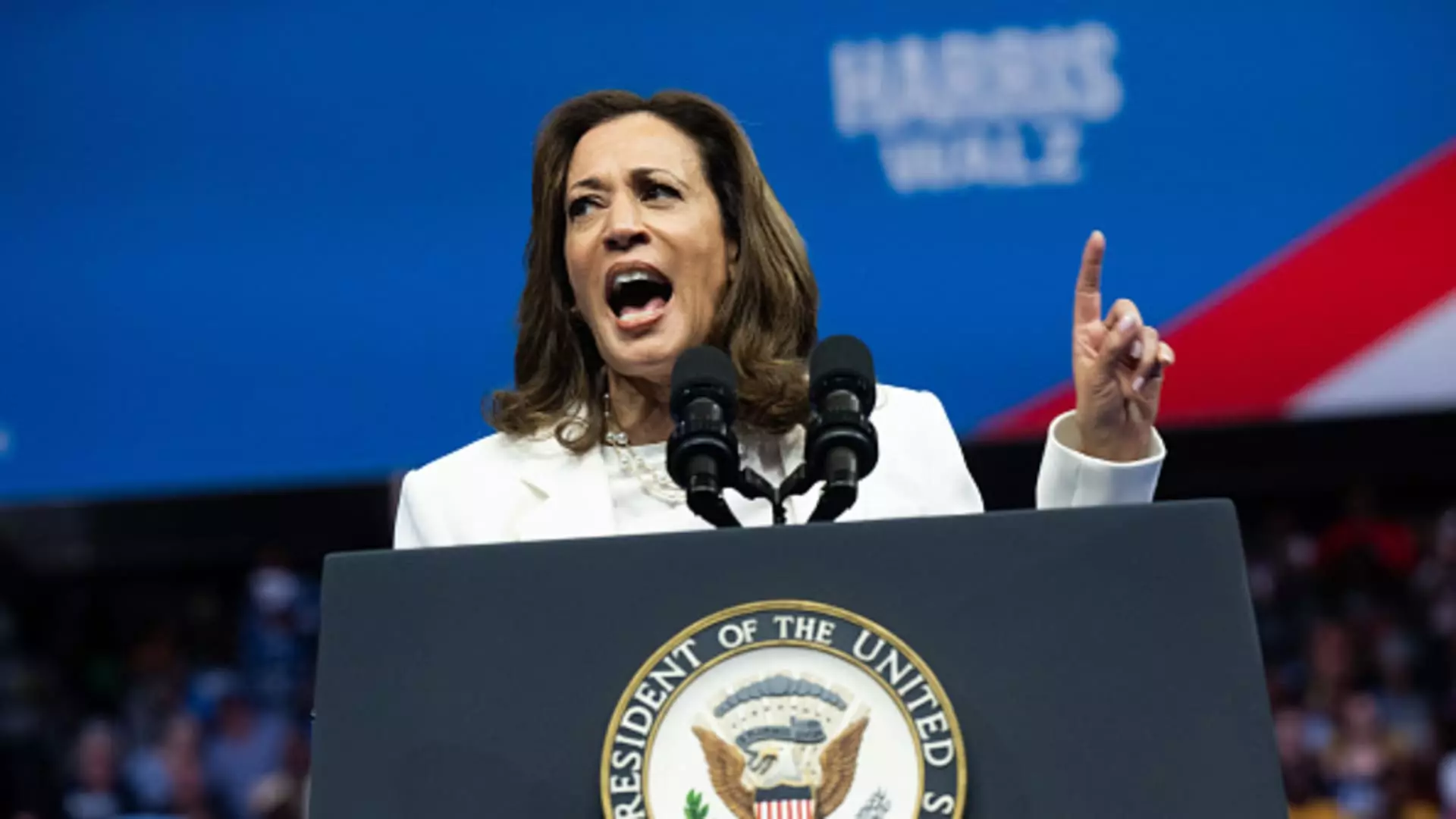Vice President Kamala Harris has recently outlined her economic agenda, calling for higher taxes on wealthy Americans and corporations. At the heart of her proposal is a 25% minimum tax on total income, including “unrealized gains” exceeding $100 million. Despite her efforts to address income inequality, experts believe that her plan is unlikely to gain traction in today’s political climate.
If Harris’s proposal were to be enacted, taxpayers with wealth surpassing $100 million would be required to report unrealized gains annually for each asset class. This would involve disclosing the original purchase price and market value of assets as of December 31st, along with total liabilities. Currently, individuals are subject to capital gains taxes ranging from 0% to 20% after selling a profitable asset held for more than one year, with an additional 3.8% net investment income tax for higher earners.
Despite President Joe Biden’s repeated calls for a billionaire minimum tax in his fiscal year budgets and Senate Democrats’ advocacy for a similar levy in 2021, there is minimal support for such a measure. Steve Rosenthal, a senior fellow at the Urban-Brookings Tax Policy Center, expressed skepticism about the proposal’s feasibility, citing limited political backing. Furthermore, billionaire entrepreneur Mark Cuban has dismissed the likelihood of Harris implementing a tax on unrealized gains, arguing that it would have detrimental effects on the stock market.
While many Americans support the idea of higher taxes on the wealthy, policy experts have raised concerns about the practicality of Harris’s proposal. Erica York, a senior economist at the Tax Foundation’s Center for Federal Tax Policy, criticized the plan for deviating from sound tax policy principles. She highlighted potential administrative challenges, liquidity issues, and the possibility of IRS disputes, suggesting that the proposal may be unfeasible in practice. Rosenthal echoed her sentiments, emphasizing the potential legal obstacles that could arise, especially in light of a recent Supreme Court ruling.
Vice President Kamala Harris’s advocacy for a billionaire minimum tax faces significant opposition from both political and business circles. While her intentions to address income inequality are commendable, the feasibility and effectiveness of her proposed tax measures remain in question. As the debate over taxing unrealized gains continues, it is clear that finding a viable solution to promote economic fairness and equity will be a complex and contentious process.

